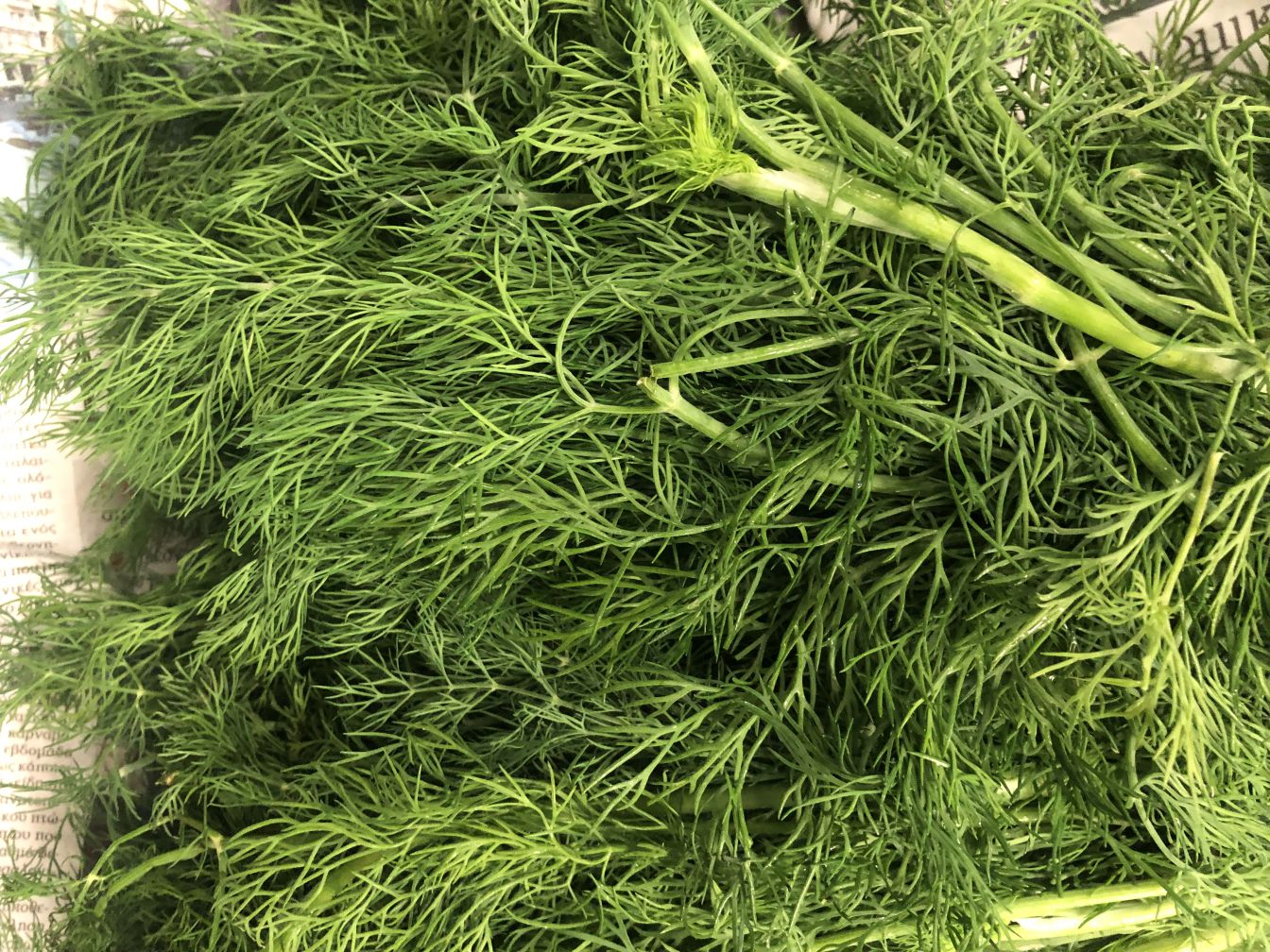Dill (Anethum graveolens) is a perennial plant belonging to the Umbelliferae family. It is widely known for its strong aromatic fragrance and its use in cooking and herbal medicine.
Dill has slender, light green leaves and small yellow flowers that cluster in umbels. The plant can reach a height of about 60-90 centimeters. Dill is primarily found in Mediterranean and Eastern regions, but it is also cultivated in other parts of the world.
In cooking, dill is often used to add flavor and aroma to various dishes. Fresh leaves are used in salads, sauces, eggs, fish, and seafood, while the seeds and dried fruits are used in the preparation of biscuits, bread, and sausages. Dill is commonly paired with fish soups, cheese salads, grilled meats, and potatoes.
As a medicinal herb, dill has many beneficial properties. It is traditionally used to relieve digestive problems such as indigestion, flatulence, and colic. It also has anti-inflammatory properties and can help alleviate inflammations of the throat and bronchial tubes.
Moreover, dill has soothing properties and can help reduce anxiety and nervousness. The essential oil of dill is also used in aromatherapy to promote relaxation and well-being.
Lastly, dill has some medical applications. The infusion made from its leaves can be used to treat colic in infants and digestive disorders in children. Furthermore, persistent use of dill as a tea can help improve digestion and aid in recovery after gastroenteritis or other digestive disorders.
It is important to note that, like any herbal product, caution should be exercised, and it is advisable to consult a specialist before using dill for therapeutic purposes. There may be contraindications or interactions with medications or other products.
In summary, dill is an aromatic herb with multiple uses. It is widely used in cooking to add flavor and aroma to various dishes. It also has medicinal properties and can help relieve digestive problems, manage anxiety and nervousness, and promote relaxation and well-being. It is important to consult a specialist before using dill for any therapeutic purpose.
LATEST RECIPES
GET LATEST UPDATES
Newsletter Subscribe
FEATURED ARTICLE

GET LATEST UPDATES
Newsletter Subscribe






















































































